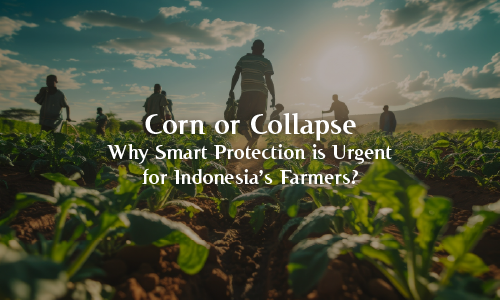
Summary: The liberalization of international trade has introduced new challenges to national food security, particularly for countries like Indonesia where agriculture remains a vital pillar of economic and social stability. This article explores the potential consequences of Indonesia’s recent decision to eliminate import tariffs on corn from the United States, a move that may undercut local farmers due to the stark cost differences between imported and domestically grown corn. While this policy aims to enhance trade relations, it risks accelerating local production decline, increasing import dependency, and undermining food sovereignty. Through a critical analysis of production trends, market dynamics, and policy responses, the article identifies the systemic risks posed by unchecked corn imports, including farmer disengagement, supply-demand imbalances, and vulnerability to global supply shocks. In response, it outlines a three-pillar strategy comprising selective tariffs and import quotas, government-backed minimum purchase prices, and investment in agricultural modernization. The paper further proposes a phased action plan, short, medium, and long-term, to ensure farmer resilience, maintain production capacity, and reduce structural dependence on foreign commodities. The article concludes by emphasizing the role of civil society in supporting local agriculture through informed purchasing, policy advocacy, and demands for transparency. It argues that food security is a shared responsibility and that a balanced, protective policy framework is essential to securing Indonesia’s agricultural future in the face of globalization.
Introduction: A New Challenge to National Food Sovereignty
Food security is a foundation of national stability. But as global trade liberalizes and borders become increasingly open, local agriculture, especially essential crops like corn, is under serious pressure. Recently, Indonesia agreed to eliminate import tariffs on corn from the United States as part of a broader trade deal. This decision may have serious ripple effects. With much lower production costs, imported corn could flood the local market, making it almost impossible for Indonesian farmers to compete. Without strong policies in place, local producers may lose motivation to plant corn altogether, leading to a…

















